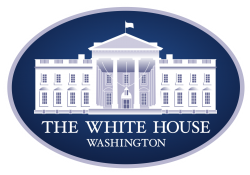General Statements by Regional Groups regarding the Agenda of SCCR 34
GRULAC:
We remember the important work of the previous chair and vice chairs. We would like to thank the Secretariat for preparation and organization of this session and also for publication of the documents for our consideration.
SCCR34: Atmospherics of WIPO negotiations on a broadcasting treaty
Currently, the WIPO Standing Committee on Copyright and Related Rights (SCCR) is engaged in negotiations on a Treaty for the Protection of Broadcasting Organizations, an exercise dating back to 1998. (Source: Timeline of WIPO negotiations on a Treaty for the Protection of Broadcasting Organizations). Continue Reading
WIPO SCCR 34 May 1, 2017 Day 1: Agenda and Election of New Chair and Vice Chairs
The DG, Franci Gurry, started the SCCR meeting with a summary of the issues to be discussed, some old (Broadcasting treaty, Limitations and Exceptions for libraries, archives, museum and education and for people with other disabilities) some new or “exploratory” (GRULAC proposal on copyright and digital works and resale rights):
DIRECTOR GENERAL: […]
Continue Reading
How Sanofi Prices Its MS Drug Aubagio (Teriflunomide) in the U.S. and Five Reference Countries
The U.S. Army recently rejected requests by public interest groups, Senator Bernie Sanders, and almost a dozen House Democrats to refuse to grant Sanofi an exclusive license on patents on a Zika virus vaccine, or, alternatively, to ensure that the license included terms assuring that U.S. taxpayers would not pay a higher price than other high-income countries. Specifically, KEI proposed the following terms to be included in the contract:
Sanofi fines for fraud, kickbacks, etc
April 3, 2017. Sanofi agreed to pay $19.9 million to resolve allegations under the False Claims Act that the company overcharged the U.S. Department of Veterans Affairs (VA) for drugs under two contracts between 2002 and 2011. According to the DOJ press release:
U.S. Army Rejects Pricing Concerns in Grant of Exclusive Patent License to Sanofi on Zika Vaccine
Today, KEI received a letter from the U.S. Army dated April 21, 2017, signed by Barry M. Datlof, in which the Army largely rejected concerns raised in comments submitted by KEI and various other public interest groups related to the proposed grant of an exclusive license to the French drug company Sanofi on a U.S. Army-invented vaccine for Zika virus.
Continue Reading
2017: KEI, UACT Request that Trump Administration Reevaluate Xtandi Petition
Knowledge Ecology International and the Union for Affordable Cancer Treatment sent a letter to Secretary Tom Price of the Department of Health and Human Services, and to Secretary Jim Mattis of the Department of Defense, requesting that the Trump Administration reevaluate the January 2016 Xtandi petition that the government use its rights in patents under the Bayh Dole Act (35 U.S.C. Continue Reading
KEI Statement on House Letter to President Trump on the Protection of Taxpayers’ Rights in Federally-Funded Inventions
4 APRIL 2017
FOR IMMEDIATE RELEASE
CONTACT: Zack Struver, zack.struver@keionline.org or +1 (202) 332-2670
In a letter sent today, Representative Lloyd Doggett, D-Texas, and 50 other democratic members of Congress requested that President Donald J. Trump issue guidance for the use of Bayh-Dole Act march-in rights in order to protect taxpayer’s rights in federally-funded patented inventions.
The following statement should be attributed to James Love, Director of Knowledge Ecology International (KEI):
“The letter from members of Congress on the need to protect taxpayer’s rights in the inventions they fund is important, timely, and directly related to the challenge of providing affordable health care to everyone. Federally-funded inventions are now routinely placed on the market at extremely high prices. Astellas charges more than $350 per day for the prostate cancer drug Xtandi, and BioGen is charging $1.125 million for the first two years of Spinraza, which is used to treat spinal muscular atrophy in mostly young children. The notion that the federal government will not engage on the pricing of these products runs counter to the explicit provisions in the Bayh-Dole Act that require inventions be made ‘available to the public on reasonable terms.’ The President can curb high prices for these drugs without new legislation, and without putting patients at risk.”
KEI filed the most recent march-in request with the federal government on the prostate cancer drug Xtandi.
The letter is available as a PDF here and below in plain text.
Representative Doggett’s office issued the following press release: https://doggett.house.gov/media-center/press-releases/congressional-democrats-trump-we-re-calling-your-hand-lower-prescription
Democrats in House and Senate introduce new drug pricing bill
KEI statement: 21st meeting of the WHO Expert Committee on the Selection and Use of Essential Medicines
On Monday, 27 March 2017, Knowledge Ecology International (KEI) delivered the following oral statement to the Open Session of the 21st Meeting of the WHO Expert Committee on the Selection and Use of Essential Medicines. The program for the open session can be found here.

